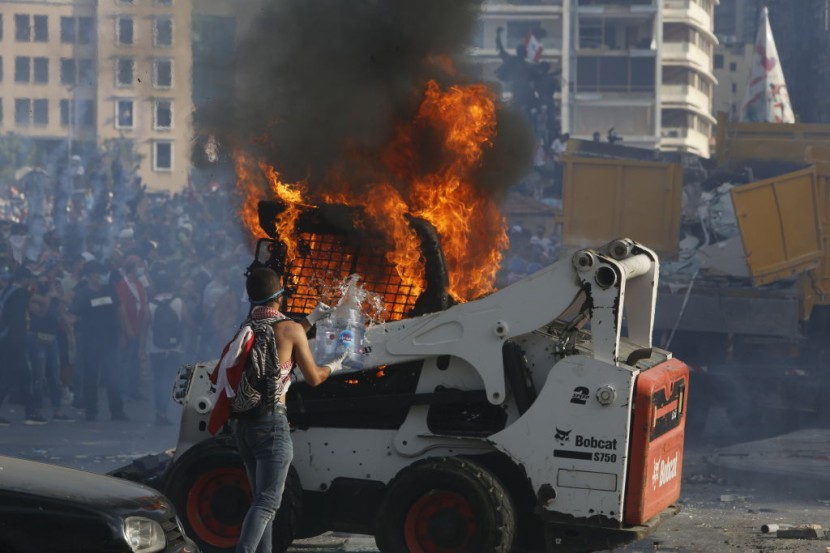
Amidst the increasing rage in the aftermath of the deadly Beirut blast, protesters have stormed Beirut's government buildings to rally against the country's ruling class.
On Saturday, as protesters attempted to get into Lebanon's parliament building, clashes against the country's Internal Security Forces (ISF). The site has been repeatedly targeted by protesters since October last year when the anti-establishment protests began.
According to Aljazeera, buildings that were already destroyed by the blast were set on fire by thousands of people who joined the riots. They also engaged in several encounters with the police and were answered with rubber bullets, tear gas, and even with live ammunition fired into the air.
In addition, a protester identified as Sandra Khoury stated that the government's ruling class has taken everything from her, including her youth, her money, and this time the lives of her people. During the interview, Khoury was holding a piece of onion on one hand which was being used by protesters to alleviate tear gas effects.
Meanwhile, the fire brigade of the city of Beirut did not leave their bases despite the calls to spray water on the protesters. According to them, their refusal to do so is their way of protesting for the lives of at least 10 of their colleagues who perished in the blast. In addition, Governor Marwan Aboud of Beirut put out an order that fire brigades should only respond to fires in order to formalize the matter.
The ISF also reported that one of their officers dies during one of the clashes against the protesters. In their report, it was stated that the protesters attacked the officer causing him to fall from a hotel located in central Beirut. Moreover, the Lebanese Red Cross/Crescent stated that around 175 people were treated on the scene of the protests while 63 were taken to hospitals.
On top of this, protesters also clashed with the army later on Saturday near the main ring road of Beirut just by the city's center. The soldiers who have been given more power by the declaration of a state of emergency in the nation's capital used sticks to stop the civilians who retaliated by throwing rocks.
Lebanon's Information Minister Resigns
Meanwhile, Mana Abdel Samad, the information minister of Lebanon has become the first government official to resign in the aftermath of the blast that took the lives of more than 150 people and reduced the capital into nothing more than a pile of debris, The Guardian reported.
During her announcement of her resignation, she apologized to the people of Lebanon for failing them, referring to the failures of the government that could have possibly led to the catastrophic incident.
Since the explosion has been widely seen by people as evidence that the core of the state is already rotting, the Maronite Church of Lebanon's head called the entire government to step down from their posts. Bechara Boutros al-Rahi, patriarch of the Maronite also joined the people who have been calling the cabinet members of prime minister Hassan to resign over the blast. He also added that the incident can be referred to as a "crime against humanity"
Related article: Beirut Blast: Lebanon Security Forces Fire Teargas at Protesters
© 2025 HNGN, All rights reserved. Do not reproduce without permission.








